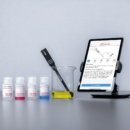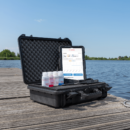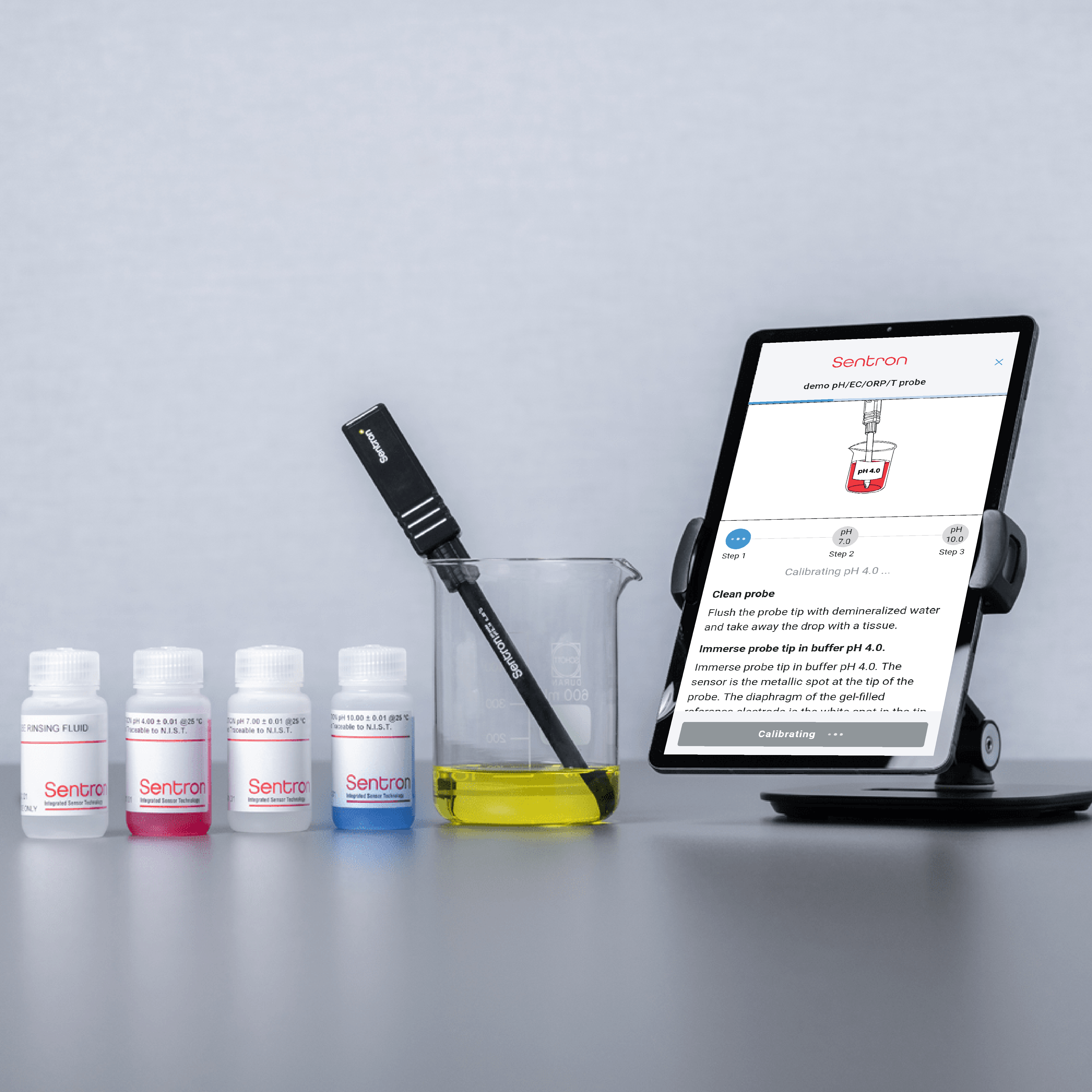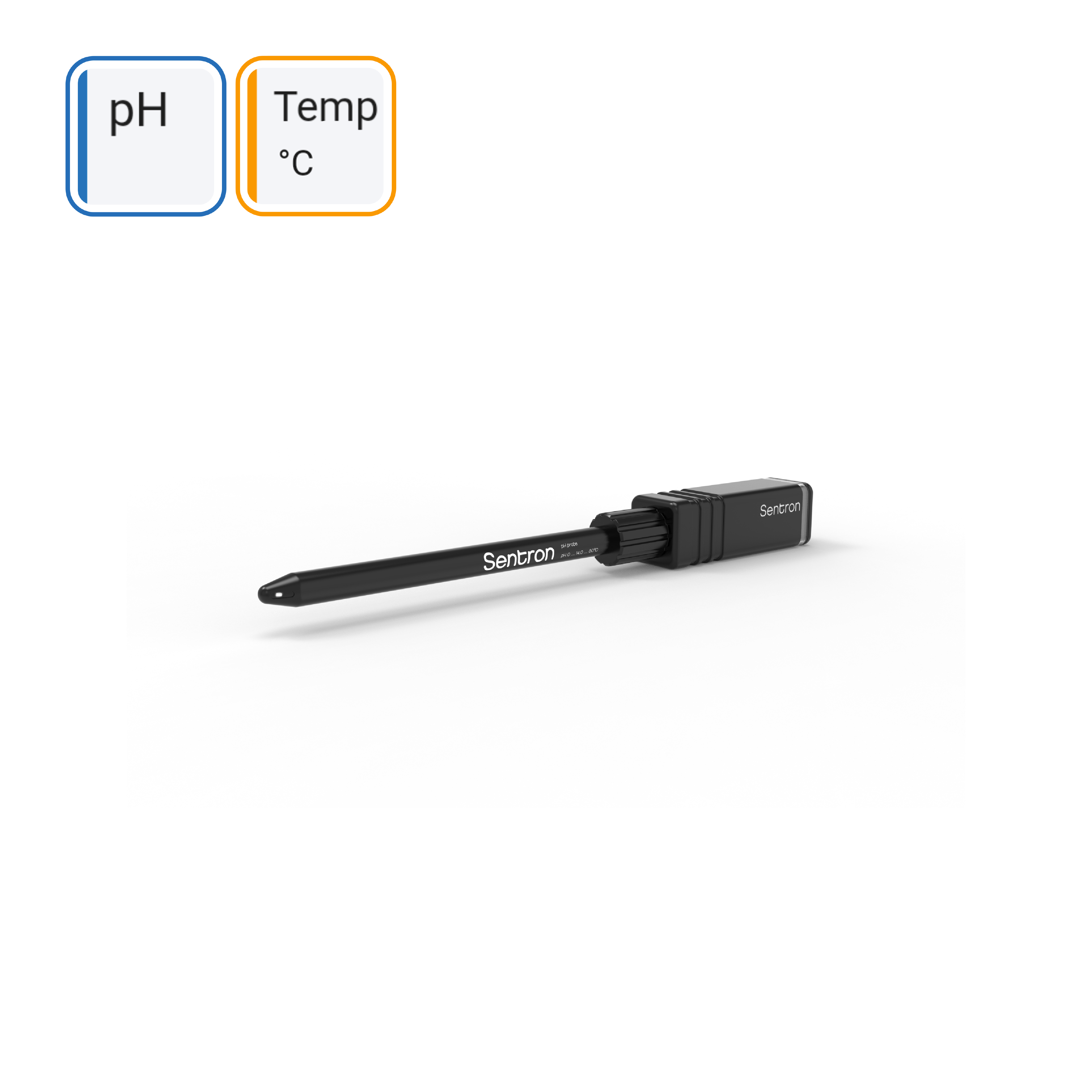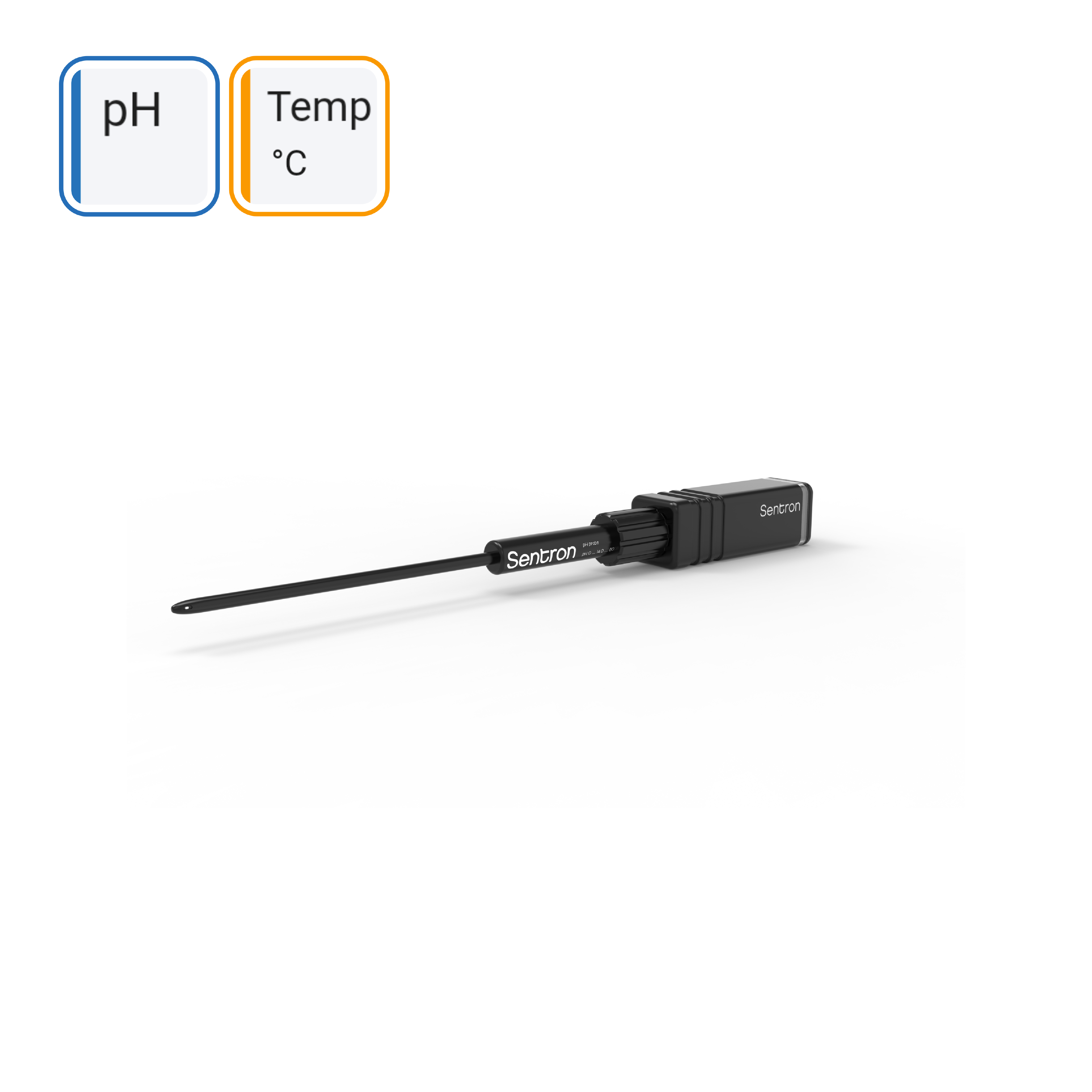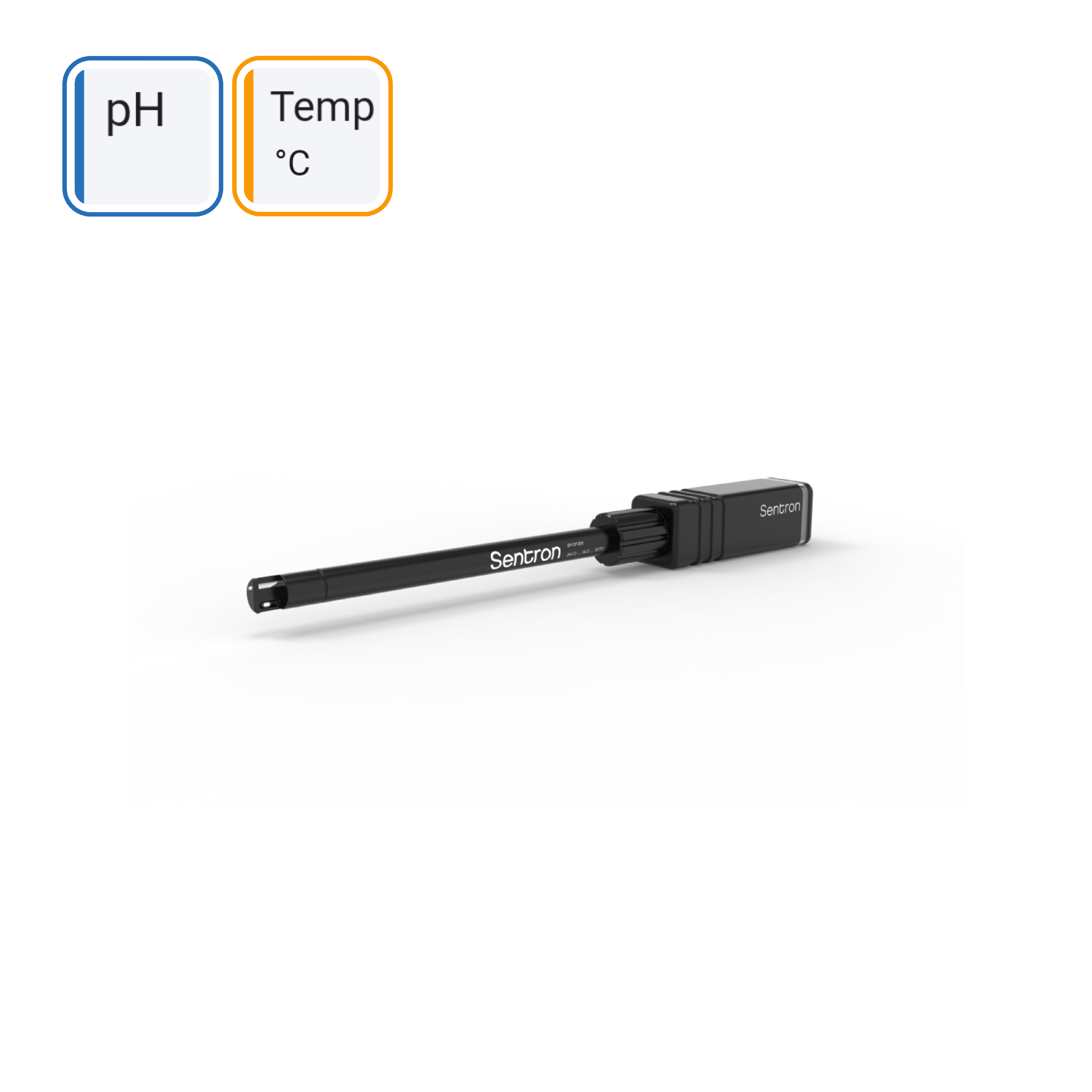ISFET pH meter for laboratory use
Whether you run a large-scale laboratory or whether you are in a classroom, the safety and integrity of your studies and instrumentation is of the utmost importance. The Sentron laboratory glass-free multiparameter probes with ISFET pH, electrical conductivity and ORP deliver precision while offering simplicity and versatility.
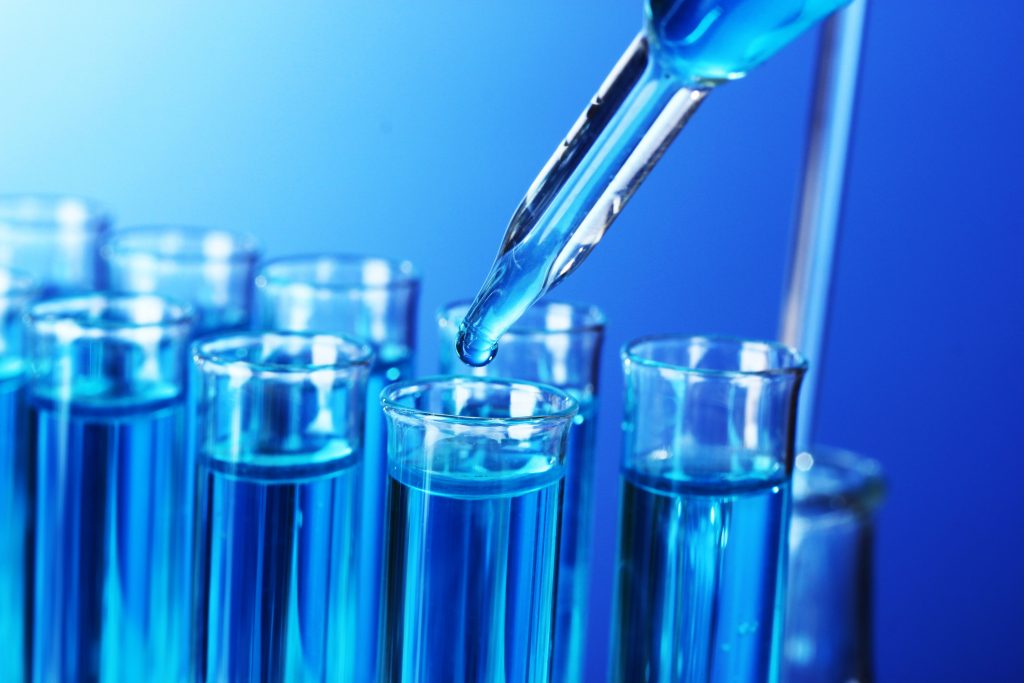
ISFET pH meter for laboratory use
Whether you run a large-scale laboratory or whether you are in a classroom, the safety and integrity of your studies and instrumentation is of utmost importance. The Sentron laboratory glass-free ISFET pH probe delivers precision while offering simplicity and versatility at the same time.
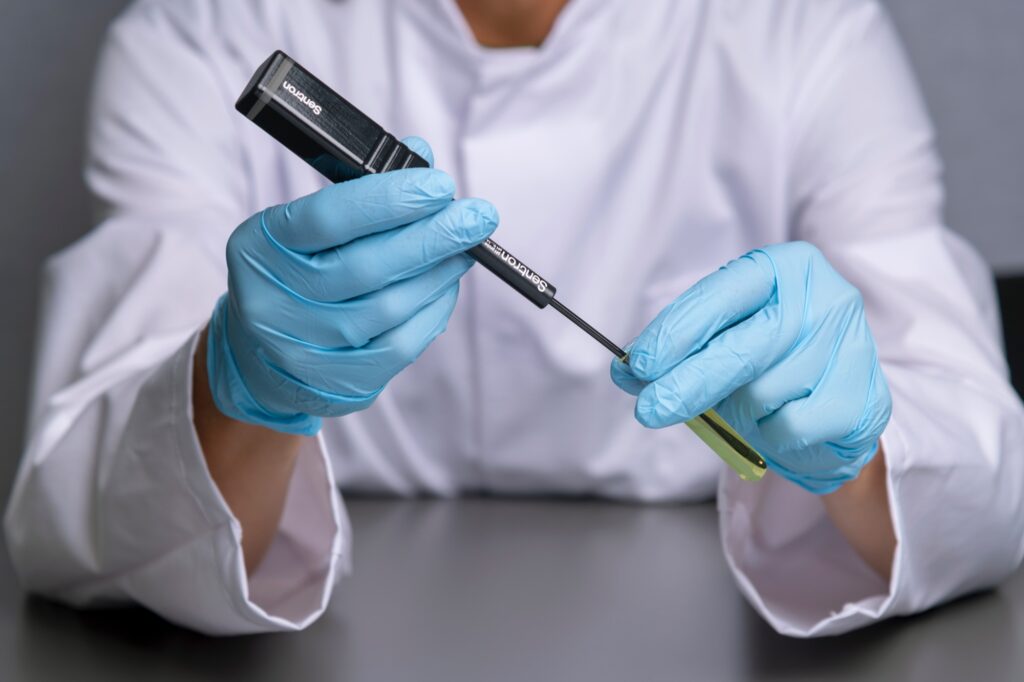
Every sample another probe
Every laboratory is different, and so are the vials, tubes and cell culture flasks for sample preparations. For this reason we have several variants of the probes: one is the general cone-shaped probe for use in beakers, erlenmeyer flasks etc. For small vials and tubes the MicroFET is more suitable with its 3mm diameter and 110 mm length barrel. See for the specifications of all variants our leaflet.
Laboratory pH package
Look no further: we have the laboratory package. This complete benchtop package includes everything you need for wireless, durable pH monitoring in the laboratory. The tablet, held by a universal holder, provides easy use and visualization of the app on your lab table. The package contains a buffer solution set so you can start immediately with your pH measurements.
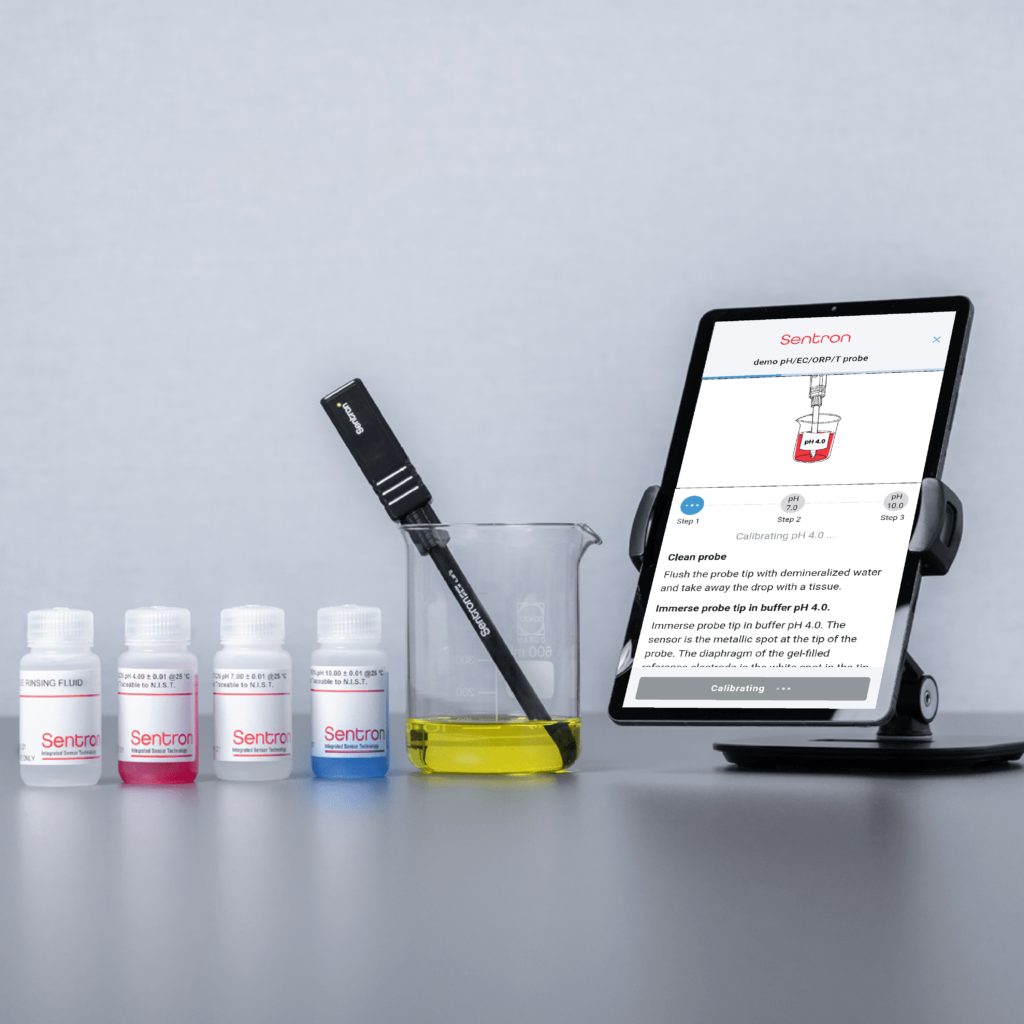
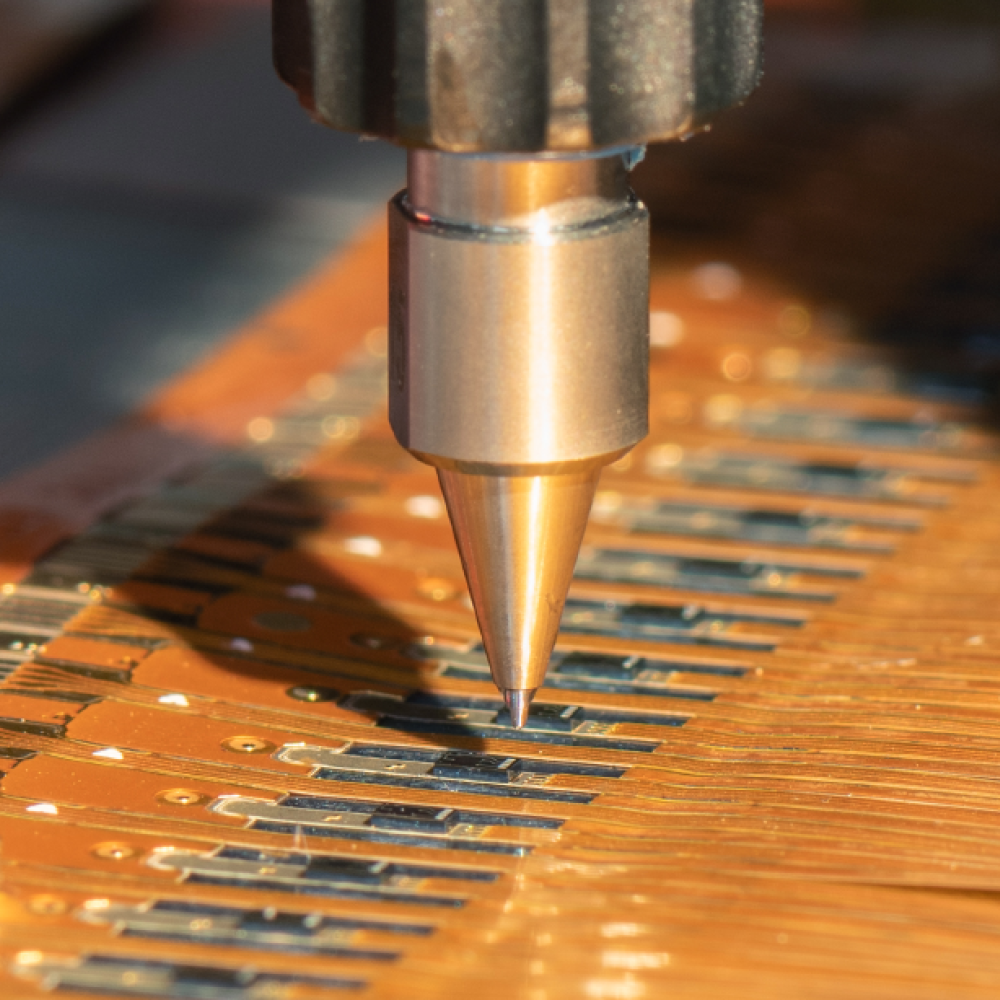
What’s next?
By taking a serious look at all applications, we keep entering into new innovations in our semiconductor production facility. Recently we launched the sensors for EC and ORP, with which great multisensor solutions for e.g. water monitoring can be provided.
Ion-Selective Sensors
We started innovative developments on ion-selective sensors that have a membrane mixture suitable for detection of different ions based on the ISFET technology. Selectivity is based on proprietary modifications with several polymer matrix configurations. Nitrate (NO3–), Ammonium (NH4+) and Potassium (K+) are currently in development.
pH meter
ISFET pH Probe for Laboratory Use: The Next Generation pH Measurement
In the world of science, precision and accuracy are crucial elements that researchers and scientists strive for. Whether it’s in the laboratory, in the field, or in industrial applications, the ability to measure pH accurately is essential. pH is a critical parameter in various industries, including agriculture, environmental monitoring, food and beverage production, and pharmaceuticals. Thus, it’s vital to have a reliable and accurate pH measurement tool that can provide fast and precise readings.
One of the most innovative and advanced pH measurement tools available today is the ISFET pH meter for laboratory use. ISFET stands for Ion-Sensitive Field-Effect Transistor, which is a type of pH sensor that offers exceptional performance compared to traditional pH measurement methods.
In this article, we’ll take an in-depth look at the ISFET pH meter for laboratory use, how it works, its advantages, and why it’s the best choice for scientific research and industrial applications.
What is an ISFET pH meter for laboratory use?
An ISFET pH meter for laboratory use is a new generation of pH measurement tool that uses a solid-state pH sensor instead of a glass electrode sensor. The ISFET sensor comprises a thin layer of silicon oxide, which acts as an insulator and a pH-sensitive gate. When the pH-sensitive gate comes into contact with a sample solution, it responds to changes in pH by changing the surface charge of the gate. The change in surface charge produces a measurable change in the electric field, which is proportional to the pH of the sample solution.
Advantages of ISFET pH meter for laboratory use:
Compared to traditional glass electrode pH meters, ISFET pH meters offer several advantages, including:
Fast and Accurate Measurements: ISFET pH meters provide rapid and precise pH measurements, making them ideal for time-sensitive experiments and industrial processes.
Wide pH Range: ISFET pH meters have a wide pH range, making them suitable for various applications.
Resistance to Electrolytes: Unlike glass electrode pH meters, ISFET pH meters are resistant to changes in the electrolyte concentration of the sample solution, which can interfere with the accuracy of measurements.
Durability: ISFET pH sensors are more durable than traditional glass electrodes and are less prone to breakage.
Easy to Clean: ISFET pH sensors are easy to clean, making them ideal for use in applications where cleanliness is critical, such as in the food and pharmaceutical industries.

